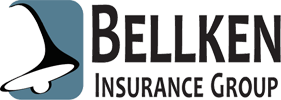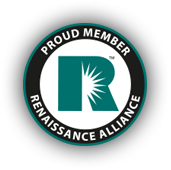What Insurance Carriers Look for Before Quoting Your Business in Flordia
See How We're Different
or call us: 954-233-0733
Understanding the intricacies of insurance quotes can be daunting, especially for business owners in Florida. Insurance carriers evaluate various factors before providing a quote, which can significantly impact the cost and coverage options available. This article delves into the key elements that insurance carriers consider when quoting businesses in the Sunshine State.
Business Type and Industry
The type of business and the industry in which it operates are fundamental factors that insurance carriers evaluate. Different industries come with varying levels of risk, which directly influences insurance premiums. Understanding these nuances is essential for business owners seeking to navigate the insurance landscape effectively.
1.1 Risk Assessment by Industry
Insurance carriers categorize businesses into different sectors, such as retail, manufacturing, or services. Each sector has its own risk profile. For instance, a construction company may face higher risks due to the nature of its work compared to a consulting firm, which typically has lower exposure to physical risks. Carriers assess these risks to determine the likelihood of claims and adjust quotes accordingly. Additionally, within each industry, specific activities can further influence risk. For example, a restaurant that serves alcohol may face different liabilities than one that does not, leading to variations in coverage needs and premiums. Understanding these distinctions can help businesses tailor their insurance policies to better suit their operational realities.
1.2 Business Size and Revenue
The size of the business, often measured by revenue and the number of employees, also plays a crucial role. Larger businesses may face more complex risks and liabilities, which can lead to higher premiums. Conversely, smaller businesses might benefit from lower rates, but they still need to demonstrate sound risk management practices to secure favorable quotes. Furthermore, the growth trajectory of a business can impact its insurance needs. A rapidly expanding company may require more comprehensive coverage as it takes on new projects, hires additional staff, or enters new markets. This dynamic nature of business size and revenue necessitates regular reviews of insurance policies to ensure that coverage remains adequate and aligned with the evolving risks faced by the company.
Location and Geography
The geographical location of a business significantly influences insurance quotes. Florida's unique climate and susceptibility to natural disasters, such as hurricanes, are critical considerations for insurers.
2.1 Natural Disaster Risks
Florida is prone to hurricanes, flooding, and other natural disasters. Insurers will assess the location of a business in relation to flood zones and hurricane-prone areas. Businesses located in high-risk areas may face higher premiums or may need to purchase additional coverage to mitigate these risks. For instance, coastal businesses often need to invest in specialized windstorm insurance, which can be a substantial additional cost. Moreover, the frequency of severe weather events in recent years has led to a heightened awareness among insurers, prompting them to adjust their risk models and pricing structures accordingly.
2.2 Local Regulations and Compliance
Each state has its own set of regulations that businesses must adhere to. Florida's laws regarding liability and workers' compensation can affect insurance quotes. Carriers will look for compliance with local regulations, as non-compliance can lead to increased risks and, consequently, higher premiums. Additionally, Florida's regulatory environment is shaped by its diverse industries, from tourism to agriculture, each with its own specific requirements. For example, businesses in the hospitality sector must navigate stringent health and safety regulations, which can influence their insurance needs and costs. Understanding these local nuances is crucial for business owners seeking to optimize their insurance coverage while minimizing expenses.
Claims History
A business's claims history is a critical factor that insurance carriers examine. A history of frequent or severe claims can signal higher risk to insurers.
3.1 Frequency of Claims
Insurance carriers will review how often a business has filed claims in the past. A high frequency of claims can lead to higher premiums, as it indicates a pattern of risk. Businesses that have maintained a low claims history may be eligible for discounts or more favorable terms. Moreover, insurers often categorize claims by type, such as property damage, liability, or workers' compensation, which can further influence their assessment. For instance, a business that frequently files liability claims may be perceived as more hazardous than one with a similar number of property damage claims, prompting insurers to adjust their pricing models accordingly.
3.2 Severity of Claims
Not only the frequency but also the severity of past claims matters. A single large claim can have a more significant impact on insurance quotes than several smaller claims. Insurers will analyze the nature of past claims to assess the potential future risk associated with insuring the business. Additionally, the context surrounding these claims is crucial; for example, claims arising from natural disasters may be viewed differently than those resulting from negligence or operational failures. This nuanced understanding helps insurers gauge not just the financial implications of past claims but also the underlying risk management practices of the business, which can influence future claim likelihood and severity.
Business Operations and Practices
The day-to-day operations and risk management practices of a business are vital in determining insurance quotes. Insurers look for businesses that actively manage risks and implement safety measures. A well-structured operational framework not only enhances productivity but also fosters a culture of safety and accountability, which can significantly influence an insurer's perception of the business's risk profile.
4.1 Safety Protocols and Training
Businesses that have established safety protocols and provide regular training to employees are viewed more favorably by insurance carriers. Effective safety measures can reduce the likelihood of accidents and claims, leading to lower premiums. Insurers may ask for documentation of safety training programs and incident reports. Furthermore, companies that engage in continuous improvement of their safety protocols, such as conducting regular audits and updating training materials, demonstrate a commitment to workplace safety that can further enhance their standing with insurers. This proactive approach not only minimizes risks but also boosts employee morale and productivity, creating a safer and more efficient work environment.
4.2 Risk Management Strategies
In addition to safety protocols, insurers will evaluate a business's overall risk management strategies. This includes how a business identifies, assesses, and mitigates risks. Businesses that demonstrate proactive risk management are more likely to receive competitive quotes. For instance, the implementation of technology-driven solutions, such as risk assessment software and data analytics, can provide valuable insights into potential vulnerabilities. By leveraging these tools, businesses can make informed decisions about where to allocate resources for risk mitigation, thus enhancing their overall resilience. Additionally, establishing a risk management team or designating a risk officer can further signal to insurers that the business takes its risk management seriously, potentially leading to more favorable insurance terms.
Financial Stability and Credit History
The financial health of a business is another critical consideration for insurance carriers. A stable financial background can influence the terms and conditions of an insurance quote. Insurers are not only interested in the current financial standing but also in the historical performance of the business, as this can provide insights into its resilience and ability to withstand economic fluctuations.
5.1 Credit Score and Financial Records
Insurance carriers often review a business's credit score and financial records to gauge its stability. A strong credit score indicates reliability and may lead to lower premiums. Conversely, a poor credit history can raise red flags for insurers, resulting in higher costs or limited coverage options. Moreover, insurers may delve deeper into financial documents such as balance sheets, income statements, and cash flow statements to assess the overall financial health and operational efficiency of the business. This comprehensive analysis helps insurers understand not just the current financial status but also the long-term viability of the business.
5.2 Business Structure and Ownership
The structure of a business—whether it is a sole proprietorship, partnership, or corporation—can also impact insurance quotes. Corporations may have more complex liability structures, which can influence risk assessments. Additionally, the experience and background of the business owners can play a role in how insurers perceive the business's risk profile. For instance, a business led by seasoned professionals with a proven track record may be viewed more favorably than one run by individuals with limited experience. Insurers may also consider the industry in which the business operates, as certain sectors are inherently riskier than others, further complicating the evaluation process.
Furthermore, the geographical location of the business can also affect insurance premiums. Businesses situated in areas prone to natural disasters, high crime rates, or economic instability may face higher insurance costs due to the increased risk associated with those factors. Insurers often take into account local market conditions and trends, which can vary significantly from one region to another. This multifaceted approach to assessing financial stability and credit history ensures that insurance carriers can tailor their offerings to reflect the unique risks associated with each business, ultimately leading to more accurate and fair pricing.
Coverage Needs and Limits
Every business has unique coverage needs based on its operations, assets, and risk tolerance. Insurance carriers will assess these needs to provide tailored quotes. This assessment often involves a comprehensive review of the business's operational processes, the nature of its products or services, and the potential risks associated with its industry. By understanding these factors, insurers can offer more precise coverage options that align with the specific vulnerabilities a business may face.
6.1 Types of Coverage Required
Different businesses require different types of coverage, such as general liability, property insurance, or professional liability. Insurers will evaluate the specific coverage needs based on the business type and industry practices. For instance, a construction company may need additional coverage for equipment and workers' compensation, while a tech startup might prioritize cyber liability insurance due to the nature of its digital operations. Businesses that require specialized coverage may face different pricing structures compared to those seeking standard policies. Moreover, understanding the nuances of each type of insurance can help business owners make informed decisions about their risk management strategies.
6.2 Desired Coverage Limits
The limits of coverage a business chooses can also affect the quote. Higher coverage limits typically result in higher premiums, as they increase the insurer's potential liability. Businesses must carefully consider their coverage needs and financial capacity when selecting limits to ensure they are adequately protected without overextending their budgets. It’s essential for business owners to conduct a thorough risk assessment to determine the potential financial impact of various risks. This assessment can guide them in choosing limits that not only meet legal requirements but also provide peace of mind in the face of unforeseen events. Additionally, businesses should regularly review and adjust their coverage limits as they grow and evolve, ensuring that their insurance remains aligned with their current operations and risk profile.
Market Conditions and Competition
The insurance market is dynamic, influenced by various external factors, including economic conditions and competition among carriers. These factors can impact quotes and available coverage options, making it essential for business owners to navigate this landscape carefully. Understanding the nuances of the market can empower businesses to make informed decisions regarding their insurance needs, ultimately leading to better financial outcomes.
7.1 Economic Trends
Economic conditions, such as inflation and market stability, can influence insurance premiums significantly. For instance, during periods of high inflation, the cost of claims may rise, prompting insurers to adjust their pricing models to account for increased risks. Additionally, fluctuations in interest rates can affect the returns on investments that insurers rely on to pay future claims, further influencing premium rates. Business owners should stay informed about market trends that may affect their insurance costs, as proactive engagement can lead to more strategic planning and budgeting for insurance expenditures.
Moreover, understanding the broader economic environment can also help businesses anticipate changes in coverage availability. For example, if a particular sector is experiencing rapid growth or facing increased scrutiny, insurers may respond by tightening underwriting standards or adjusting coverage options. Keeping abreast of these developments can enable business owners to adapt their insurance strategies accordingly, ensuring they maintain adequate protection against emerging risks.
7.2 Competition Among Carriers
The level of competition among insurance carriers in Florida can also affect quotes significantly. A competitive market may lead to more favorable rates for businesses, while a lack of competition could result in higher premiums. Business owners are encouraged to shop around and compare quotes from multiple carriers to find the best coverage at the most competitive rates. This process not only helps in securing better pricing but also allows businesses to explore various policy features and endorsements that might better suit their unique needs.
In addition to comparing quotes, it is beneficial for business owners to assess the reputation and financial stability of the carriers they are considering. Researching customer reviews, claims handling processes, and the insurer's history can provide valuable insights into the quality of service they can expect. Engaging with an insurance broker who understands the local market can also be an effective strategy, as they can offer tailored advice and help navigate the complexities of policy options available in a competitive landscape.
Additional Factors to Consider
Beyond the primary considerations, several additional factors can influence insurance quotes. These may include the business's online presence, customer reviews, and industry reputation.
8.1 Online Reputation and Reviews
In today's digital age, a business's online reputation can impact its insurance quotes. Positive customer reviews and a strong online presence can enhance a business's credibility, potentially leading to lower premiums. Insurers may consider how a business is perceived in the market when assessing risk.
8.2 Industry Trends and Innovations
Insurance carriers are also paying attention to trends and innovations within specific industries. Businesses that embrace technology and innovative practices may be viewed as lower risk. For example, a retail business that implements advanced inventory management systems may be seen as more stable and less likely to experience losses.
Conclusion
Understanding what insurance carriers look for before quoting a business in Florida is essential for business owners. By being aware of the key factors that influence quotes, businesses can take proactive steps to improve their risk profiles and secure favorable insurance terms. From assessing industry-specific risks to implementing effective safety protocols, there are numerous ways to enhance a business's insurability.
Ultimately, navigating the insurance landscape requires diligence and informed decision-making. Business owners should engage with insurance professionals to gain insights into their specific needs and explore options that align with their risk management strategies. By doing so, they can ensure they are adequately protected while optimizing their insurance costs.
